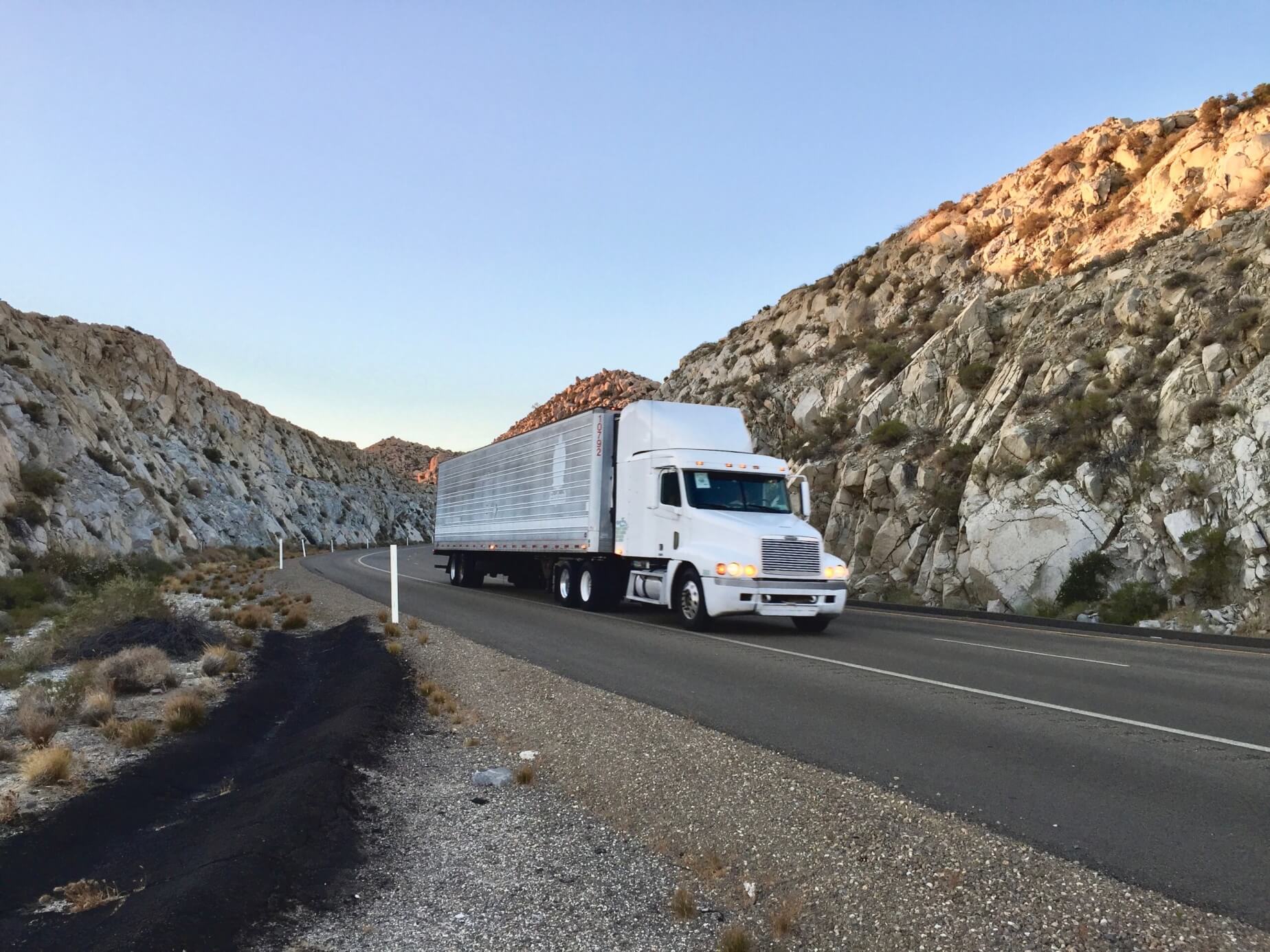For companies relying on transportation and logistics, fleet tracking has turned into a necessity over time. As the quest to achieve efficiency, safety, and accountability increases, a huge number of organizations are embracing complex fleet management systems.
Paper bookkeeping is also being replaced by smart, GPS and telematics-based tracking, which enables businesses to manage their fuel usage, route efficiency, and regulations. Here, you’ll find out the nature of fleet tracking, its applications in industries, the benefits to businesses, and its implementation.

What Is Fleet Tracking?
A fleet tracking system functions through a smooth process that combines hardware and software. Here’s how:
Hardware:
- GPS Telematics Devices: Track vehicle location and connect with satellites.
- OBD Devices: Collect engine data and detect diagnostic issues.
- Sensors (Fuel, Temperature, Cargo): Monitor fuel levels and cargo conditions.
- In-Cab Cameras: Capture driver actions and traffic action.
Software:
- Fleet Management Platform: Displays real-time data, reports, and alerts.
- Analytics Tools: Analyze trends in fuel use, maintenance, and driver performance.
Technologies Behind Fleet Tracking
The current GPS fleet tracking is based on a combination of multiple intelligent technologies. Each vehicle has GPS and telematics, which give precise location information and integrate it with vehicle diagnostics to track the performance and driver behavior. IoT sensors and devices go further to track the engine health, temperature, and tire pressure of cargo in real-time.
Moreover, such information is transmitted to the cloud via mobile connections using 4G or 5G networks. It allows instant updates, notifications, and communications between drivers and dispatchers.
Lastly, the data is processed through mobile fleet management systems and analytics to generate reports, forecast maintenance needs, and optimize routes to reduce costs. Users can access this information through a readily usable dashboard on their computer or mobile app.
What is Fleet Tracking Used For?
Tracking of the fleet is much more than displaying the positions of vehicles on a map. It is an effective tool that empowers business organizations to become efficient, secure, and profitable by providing real-time details of vehicle performance and functioning. Here are the operations it assists with:
Real-Time Vehicle Monitoring
Fleet tracking is built around real-time monitoring, which enables businesses to view the precise location of every vehicle and track its movement on a real-time map. Without calling drivers to update about the routes, destinations, and vehicle history, managers can monitor them. Such visibility enables dispatchers to assign jobs to the closest driver, improve response times, and reduce travel distance.
Driver Behavior Analysis
Telematics is used in vehicle tracking systems to monitor mobile usage, including the speed at which the vehicle is driven, the harshness of braking, sharp turns, and idling. This data is summarized into driver scorecards, which provide the managers with an idea of driving behavior. The data also helps to conduct specific coaching and promote more responsible and safe driving among the fleet drivers. This, in turn, reduces accidents and potentially saves on insurance premiums.
Maintenance Scheduling
To track engine health, oil life, and temperature, fleet tracking systems are attached to a vehicle’s onboard computer and monitor these conditions. The system also alerts according to the real mileage or engine hours, as opposed to the regular maintenance schedules. This predictive model can eradicate significant failures, increase the life of the vehicle, and reduce repair expenses.
Fuel Management
One of the largest expenses for any fleet is fuel. The usage, mileage, and idling are tracked to detect any wasteful habits. Increasing efficiency in driving and planning routes also allows companies to save fuel, as well as identify problems like theft or siphoning by abnormal fuel-level drops.
Regulatory Compliance and Reporting
Fleet tracking can make compliance easier by capturing necessary data automatically with the Electronic Logging Devices (ELDs) and Vehicle Inspection Reports (DVIRs). This ascertains that drivers operate within legal operating limits and assists fleets in remaining within the same. Moreover, this also reduces fines and makes auditing easier with accurate and digital records.
Route Optimization
The current tracking software involves real-time traffic and past data, as well as the needs of the delivery, to identify the most efficient routes. Fleets reduce travel time, conserve fuel, and improve performance by preventing congestion and delays.
Data-Driven Decision Making
Fleet tracking converts the information on daily operations into actionable ideas. Analytics dashboards assist managers in analyzing the performance, trends, and unearthing performance opportunities. This can streamline fleet size, manage costs, and assess the ROI of fleet efficiency or safety programs.
Industry Applications
The fleet tracking systems are adaptable and can be tailored to suit the specific industry requirements of various sectors. Every industry employs this technology differently to address a given issue and enhance activities. Here’s how:
Logistics & Delivery
Optimizing time and fuel is one of the keys to profitability in logistics and delivery, making fleet tracking critical. Intelligent route planning lowers idling, fuel consumption, and accidents. Contemporary systems modify routes dynamically based on the traffic, schedules, and capacity of the vehicle. This helps cut down costs, vehicle wear, improve daily deliveries, and customer satisfaction based on proper ETAs.
Construction
Fleet tracking is used in construction to manage equipment at various job sites. Machine trackers, such as those on excavators and cranes, show their position in real-time, eradicating theft and time due to location uncertainty. By monitoring engine hours, it is also viable to schedule maintenance, billing projects properly, use assets better, and make wise decisions regarding rentals so that clients are charged properly.
Public Transit
Real-time monitoring of buses in any transport system warrants dispatchers to make changes to the schedule as and when required. This is to provide passengers with real-time arrival information. So that they can have a more comfortable journey. Onboard cameras also increase the safety of the drivers and riders.
Emergency Services
Police, fire, and ambulance teams are able to respond more safely and quickly to an emergency when there’s fleet tracking. The dispatchers will be able to find vehicles immediately and dispatch the closest vehicle. While systems will be able to use traffic information and control lights to clear the path. This will guarantee that the response times are faster, and there is increased coordination and safety among the responders.

Benefits of Implementing Fleet Tracking for Businesses
A fleet tracking system converts daily data into valuable information that offers an effective ROI. Here’s a clear look at the main benefits it provides for businesses:
Enhanced Operational Efficiency
Real-time tracking gives the dispatcher insight to make good decisions, reroute vehicles to avoid delays, and allocate the closest available driver. This will ensure that the working processes are smoothed, idle time is minimized, and operations are performed at the requested time.
Improved Safety
Fleet tracking assists in determining and rectifying unsafe practices by drivers and their vehicles before they cause accidents. This will mean fewer accidents, safer workers, and lower insurance and repair costs.
Cost Reduction
Automated delivery and efficient driving cut fuel costs, and preventive maintenance holds repair expenses down to a manageable level. Further automation functions, such as digital timesheets and simplified reporting, reduce the administrative burden.
Environmental Impact
Less idling, better routing, and fuel economy are all factors that decrease emissions and carbon footprint. This helps businesses to achieve sustainability and improve their environmentally friendly image.
Enhanced Customer Service
Accurate, real-time updates and digital proof of delivery improve transparency and communication, leading to greater customer satisfaction and trust.
Successful Fleet Tracking Implementation
ABC Logistics, a mid-sized freight firm, started to face rising expenses, inefficient routes, and bad management as it grew. To solve these issues, the corporation added GPS trackers to its fleet to empower improved monitoring and simplify operations. The results were immediate. Managers were able to know the location of the vehicles, divert traffic, and deliver on time.
Giving drivers coaching on how to drive effectively and improving their routes reduced fuel expenses by 15%. Tracking also lessened drivers’ inclination to participate in reckless driving since it improved their safety. Additionally, there were faster and more punctual deliveries that were appreciated by consumers and able to retain them. Over the year, ABC Logistics also grew 25% more efficient, lowered operating costs by 20%, and raised revenue by 30%.

Key Takeaways
Fleet tracking is an effective business instrument that raises safety and minimizes expenses. It gathers real-time vehicle location data, driver behavior insights, and engine condition information. This helps fleet managers provide perfect routes, maintenance scheduling, and driver surveillance.
Fleet tracking, therefore, lowers fuel use, maintenance costs, and accident occurrence. Businesses can also use fleet data to turn it into practical insights to improve their customer service. They can collaborate with Fuel Logic, which offers fleet tracking services to empower them to maximize their vehicle performance and ROI.
FAQs About Fleet Tracking
1. Is fleet tracking legal?
In the U.S., it is legal to track the whereabouts of company-owned vehicles. However, state laws vary. In some states, such as California, Connecticut, and Hawaii, employers must seek the consent of employees prior to tracking. Some permit company cars to be tracked without their permission, but it is still advisable to notify the staff.
2. Can fleet tracking reduce operational costs?
Fleet tracking helps lower operating costs by improving efficiency. It can save up to 9-16% of fuel through less idling and speeding, and save up to 12-16% of labor by improved route planning and time management. By monitoring the use of vehicles and when to do repairs, fleet tracking has the capacity to cut maintenance costs by up to 16%.
3. How does fleet tracking improve safety?
Fleet tracking improves safety by measuring how drivers act and assisting in correcting undesirable habits, such as excessive speeding or braking. Distractors can be detected and drivers notified with the help of AI and in-cab cameras. This proactive approach reduces accidents and costs.
4. What types of vehicles can be tracked?
GPS fleet tracking is applicable to nearly all commercial vehicles, such as trucks, vans, cars, and bus companies. It requires a GPS, a network, and software that allows businesses to scale easily to include fleets of any size.
5. How secure is the data collected through fleet tracking?
Fleet tracking information is secured using robust security algorithms such as encryption, access controls, firewalls, and frequent updates. The providers also employ data backups and employee training to avoid violations and comply with data protection regulations.
6. How does fleet tracking integrate with existing fleet management systems?
Fleet tracking software connects easily with existing fleet management systems to simplify vehicle management. It can link with fuel cards to track spending, maintenance tools to schedule repairs, payroll software to streamline billing, and CRM systems to assign jobs.
Implement Fuel Logic’s Fuel Tracking System to Improve ROI
Fuel Logic can provide dependable fleet fuel management services that streamline operations and provide you with complete control over fuel consumption, expenditure, and refueling. Our system offers real-time tracking, cost transparency, and automated refueling as the means to reduce waste, eliminate theft, and save time.
Fuel Logic also provides quick and convenient 24/7 on-site and off-site bulk fueling service without contracts or delays throughout the U.S. Contact our diesel delivery service today, or call us for a customized fleet management system for your business!







